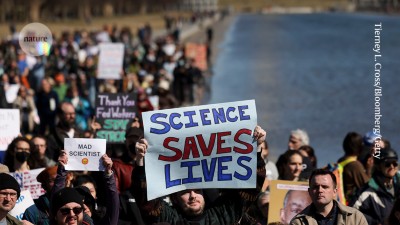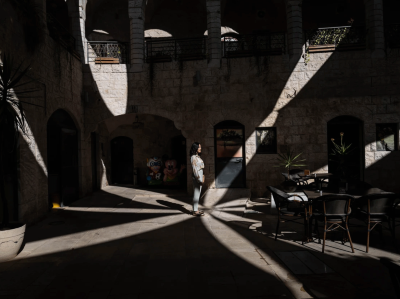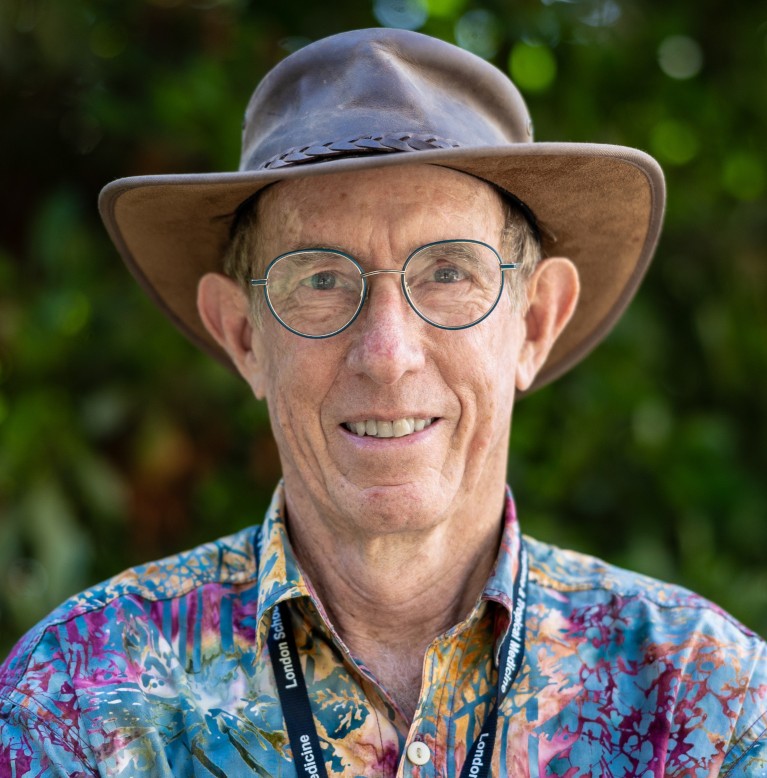Catherina Becker (centre) says it’s key for leaders to give their teams breathing space when ‘something momentous’ happens in the world.Credit: Anja Bretschneider
In June 2016, neurobiologist Catherina Becker witnessed at first hand how a contentious national issue could affect the members of her laboratory group. The United Kingdom’s vote to leave the European Union, triggering the process known as Brexit, was divisive. Becker, then director of the Centre for Neuroregeneration at the University of Edinburgh, UK, found herself navigating the fine line between acknowledging her group’s distress at the vote’s possible implications for their careers and families, and keeping the lab’s day-to-day research on track.
Becker, who was very active in the anti-Brexit movement before the vote, admits to strong feelings when she learnt of the result. “I was a bit non-directorial,” Becker admits. “I may have cussed a bit.”
But she also had to acknowledge the issue in her group. “It did come up,” she says. “It is difficult to navigate, because you have to respect people’s views. There were probably a couple of people who were pro-Brexit for various reasons. And you can’t roll over them,” she says. “So, while I expressed my opinion, I offered solidarity with everyone, hopefully.”
Still, it was a struggle. “It was a rubbish year,” Becker says.

#OpenToWork: how laid-off US scientists are coping with shattered careers
Ideally, research labs should be devoid of pressures from national politics or international conflict: places where students, researchers and technicians keep experiments running and discoveries flowing. Distressing events, however, can affect lab members more than a principal investigator (PI) might realize. In the past few years alone, the global community has had to contend with the fall of US protections for abortion, wars in Ukraine and the Middle East, and the Trump administration’s cuts to research funding — tied to climate, diversity, certain universities and the health of people from sexual and gender minorities (LGBTQ+) — to name just a few. Acknowledging the fears of students and staff member and communicating support are powerful leadership and management skills. By knowing how to navigate difficult conversations, PIs can help to ensure their groups feel safe, protected and supported during uncertain times.
Becker, who is now at the Technical University of Dresden in Germany, says it’s important to allow lab members to express their feelings. “Acknowledge that something momentous has happened,” she says. “And just leave some breathing space and don’t tell people what to feel.” That kind of empathy requires trust, Becker says. In Edinburgh, she established that culture through a Friday lab lunch. It included rollicking 45-minute discussions on topics such as ‘Who’s eaten the most experimental animals?’ — anything except the group’s work.
Becker is one of several PIs around the world who spoke to Nature’s Careers team about strategies for creating safe spaces to discuss world events. Some of these PIs have been recognized by Nature for outstanding mentorship through its annual award for mentoring in science (see go.nature.com/4zrmakc), now in its 20th year. They describe their best strategies for helping lab members to navigate contentious outside events (see ‘Five top tips for difficult group discussions’). Although their experiences might be specific to their location, a common theme emerged: that early-career researchers might feel concern and stress, and might need space and time to express their concerns safely in research environments that, historically, have not always prized personal openness or asking for help.
These PIs stress that maintaining trust is crucial so that, instead of ignoring the outside world, lab members feel they can speak up when struggling with troubling events.
Navigating civil unrest
Adesola Ogunniyi, a neurologist at the University of Ibadan in Nigeria, recalls the Occupy Nigeria movement of January 2012. Sparked by government action that more than doubled the price of fuel, Occupy Nigeria led to nationwide protests including sit-down strikes, demonstrations and even attempts to disrupt the electricity grid. These actions presented a huge risk for biomedical labs that need a reliable power supply for freezers and equipment.
Now an emeritus professor, Ogunniyi, a winner of Nature’s 2024 Mentoring in Science award, remembers how he guided his trainees when Occupy Nigeria, and similar protests and labour strikes since then, led to great uncertainty in the academic community.
“We had a lot of these incidents in which education was disrupted,” Ogunniyi says. “Sometimes, you didn’t know when [the] academic year would end, and whether, especially if you had a grant, you would be able to carry out the research.”
“Such challenges can disturb people, both psychologically and in terms of productivity,” he observes. “Sometimes protesters could be quite militant, going from lab to lab, directing people to leave their offices,”

The Israel–Hamas conflict one year on: researcher resilience in the face of war
Ogunniyi’s strategy during difficult times was twofold: to reassure lab members that “nothing lasts forever” and things would return to normal at some point, and to stress that they should continue their research, even if they had to work around the challenges presented by protesters’ actions.
Ogunniyi told his group members to keep focused on their work, whether by planning its next phase or by looking at past results to identify aspects that needed improvement or required more experiments. That way, he says, “by the time things return back to normal, they are able to come back, make up for these deficits, and continue”.
Ogunniyi says that PIs must nurture the dialogue between mentor and trainees, allowing the trainee to formulate contingency plans during disruptive periods. By giving group members ownership of decision-making, he helps them to develop the leadership skills they will need to flourish in their scientific careers.
“It has to be a two-way affair,” Ogunniyi says of the partnership. It’s not always the lab member asking what to do and the mentor giving them instructions, he notes. “It’s a dialogue. It has to be a feedback process.”
“We must always look for opportunities for growth, so that if one door closes, another one will open” if we are paying attention, he says. “Political situations and socio-economic problems should not stop science.”
Balancing dwindling resources
Andrew Prentice, a maternal and child nutrition researcher and another 2024 award winner, is mentoring his way through a more current international challenge. Prentice directs a group at the Keneba field station, a research and health-care clinic of the London School of Hygiene and Tropical Medicine’s Medical Research Council Unit in Gambia. His team depends on research funding from various sources, including the UK National Institute for Health and Care Research.
Prentice’s team is currently absorbing the impact of sudden cuts to science funding by the administration of US President Donald Trump. Perhaps surprisingly, these affect his funding for research in Gambia because the UK government is reallocating resources to places where US funding has been curtailed.
While keeping a positive outlook, Prentice is being pragmatic and is encouraging the members of his group to make contingency plans for their careers. It is a delicate balance.

Mentoring in science award winner Andrew Prentice.Credit: MRC Unit The Gambia
“We can’t just say to our group members, ‘Oh, don’t worry, we’ll be fine,’” Prentice says. “Our moral responsibility is to say, yes, I think you do need to look for other options” in case funding does not come through.
Prentice says his leadership approach was influenced by the relationship he had with his own mentor in Gambia, Roger Whitehead, a nutritionist who was based there between 1973 and 1998. Prentice recalls long walks on the salt flats near Keneba, on which he and Whitehead talked about their scientific endeavours.

Five years on: how Brexit changed three scientists’ careers
Earlier this year, a PhD student in Prentice’s group was unable to travel to Europe for his thesis defence when his family members’ visa applications were refused — an unusual occurrence, which Prentice says was probably the result of new political pressures on immigration to European countries. In response, Prentice organized a virtual celebration for the student and his family: a show of solidarity in the face of outside events, as well as a gesture of empathy.
Prentice’s advice to PI colleagues is to manage expectations with group members while encouraging them to look for potential solutions, but also to maintain a positive attitude, especially when talking to early-career researchers. “I think we must keep the faith,” Prentice says. “You’ve got to believe that things are going to get better. And we can find interim survival mechanisms to get us through to a better future.”